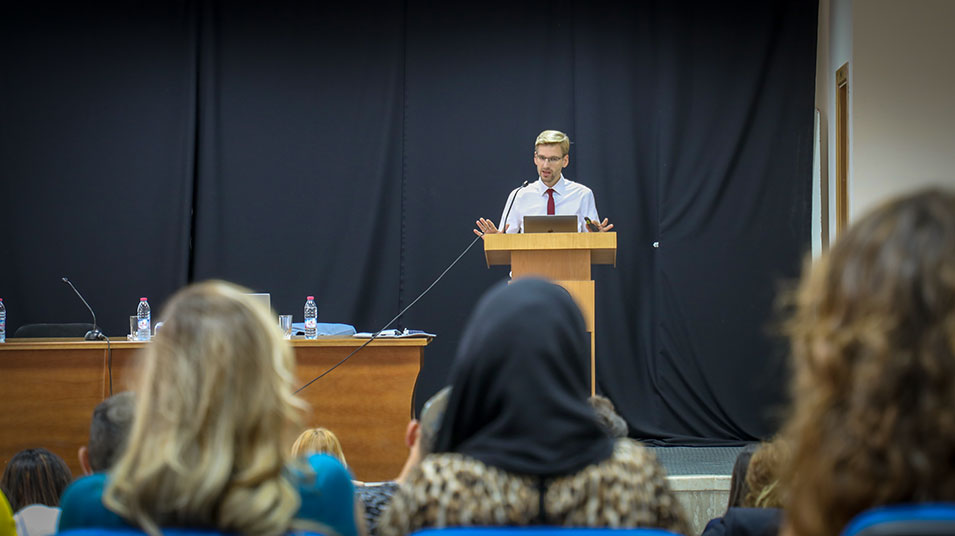Middle Eastern studies expert reflects on EU-Mediterranean foreign policy
Professor of Middle East Politics and Society at the Friedrich- Alexander University of Erlangen- Nürnberg, Germany, Thomas Demmelhuber held a lecture titled “European Union Foreign Policy and the Middle East,” organized by Birzeit University’s Ibrahim Abu Lughod Institute for International Studies, on September 23, 2019.
Tackling several key points, Demmelhuber stressed the need for the European Union to become an effective actor in foreign policy, gave an overview of EU-Mediterranean relations from the 1970’s until after the Arab uprisings in 2011, and analyzed EU-Palestine relations and the role and constellation of current regional and international actors.
Demmelhuber opened his lecture by defining the traits that characterize an internationally recognized and a decisive player in the foreign policy arena. He identified political will and solid institutions as key and existent in the European Union but pointed out that a credible international, legal personality and the coherence of strategies and instruments for implementation on the ground are essential as well.
Demmelhuber then highlighted the Euro-Mediterranean Partnership (EUROMED), tracking the cooperation’s history from its launch in 1995 with the Barcelona Process to the time after the Arab uprising in 2011. He highlighted that the European Union had to deal with a new neighborhood when in 2004 ten new members were admitted and the European Neighborhood Policy was born. This, according to Demmelhuber, initiated a new strategy characterized by pragmatism, bilateralism and the acknowledgment that the Global East is different from the Global South.
The Arab uprisings, Demmelhuber said, caught the European Union by surprise. He explained that European decision makers recognize the events of the year 2011 as a game changer in the Arab region and briefly illustrated how they have affected the EU’s foreign policy.
Focusing on European relations with Palestine, Demmelhuber emphasized the existence of long-standing relationship with Palestinian institutions in the fields of governance reform, fiscal matters, consolidation and policy, rule of law, justice, citizen safety and human rights, sustainable economic and human development, service delivery, and self-sufficiency as well as unhampered access to water and energy services.
Demmelhuber concluded his lecture by saying that the EU’s foreign policy in the Middle East exemplifies a long story of ambitious ideas contrasted by a rather pragmatic - and poor - policy output while stability and security are considered key priority issues.







